
In this piece, Ryan Soo looks back at the formation of Malaysia in 1963 and the journey of his home state Sabah since then. Has the promise of the Federation been truly fulfilled? Or is it just one long trail of broken dreams?
DO YOU KNOW THE ANSWERS TO THESE TWO QUESTIONS:
(1) Why can’t West Malaysians enter and stay in East Malaysia freely?
(2) Why does East Malaysia have a different court system from West Malaysia?
If your answers to both questions are the ‘Federal Constitution’, you’re sort of right. But that is only half the story. That is West Malaysia’s side of the story.
Here’s my side of the story – a story told by a Sabahan.
Similarly with the West Malaysian story, my story starts with many questions. But all my questions can be distilled into a simple one.
Sabah was the second richest state in Malaysia. It is now the poorest. What the #@%!! happened???
Facts & Figures
In 1970, Sabah ranked the second richest state in the Federation, with a per capita GDP second only to Selangor (which then included Kuala Lumpur).
Sabah was and is still well-endowed with natural resources including oil and gas, timber, fertile agricultural land and beauty spots for tourism. Sabah offers abundant promises for vibrant economic development and enviable prosperity.
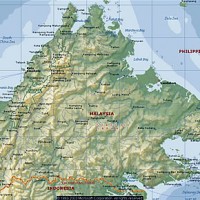 Sabah’s timber (there is none left unfortunately) funded a large portion of Malaysia’s development. Sabah is Malaysia’s largest palm oil producer with 60% of the nation’s palm oil being produced in Sabah. Sabah is also one of Malaysia’s 3 oil-producing states, producing more than 73,000 barrels of crude oil per day.
Sabah’s timber (there is none left unfortunately) funded a large portion of Malaysia’s development. Sabah is Malaysia’s largest palm oil producer with 60% of the nation’s palm oil being produced in Sabah. Sabah is also one of Malaysia’s 3 oil-producing states, producing more than 73,000 barrels of crude oil per day.
However, the state government of Sabah has one of the highest budget deficits in the country amounting RM252.89 million in 2006. With a population of 3.25 million, its per capita income currently stands at RM9,536 compared to the national average of RM18,040 for Malaysia. This shows a huge disparity with Sabah’s per capita income way below the national standard. To bring the figures into perspective, Sabah only accounts for less than 10% of the population in Malaysia but 40% of the poverty-stricken in Malaysia. In contrast, Selangor has nearly a 25% of the population but less than 10% of the poverty.
The Malaysia Agreement
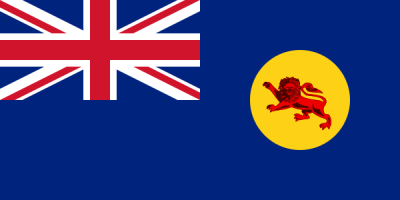
Here’s the story of once upon a time.
Do you know North Borneo (now Sabah) also celebrate its independence day on the 31st August? That’s a fact. But the independence did not happen in 1957. North Borneo’s independence day was on 31st August 1963.
North Borneo only tasted freedom for a grand total of 15 days. Then came the ‘Agreement Relating to Malaysia’ which came into force on 16th September 1963 (“Malaysia Agreement”).
A Bit Of History
Before the culmination of the Malaysia Agreement, a referendum was requested to ascertain whether or not the residents of North Borneo and Sarawak would agree to form ‘Malaysia’ with Malaya and Singapore.
Instead of a referendum, an investigative team was established. Headed by Lord Cobbold, the Commission of Enquiry also consisted of Sir Anthony Abell and Sir David Watherston (both nominated by the government of the United Kingdom) and Dato Wong Pow Nee, the Chief Minister of Penang and Muhammad Ghazali bin Shafie, Permanent Under-Secretary to the Ministry of Foreign Affairs (both nominated by the government of Malaya).
Do you notice at this point that something is already amiss?
The Cobbold Commission (as it is commonly referred to) was an enquiry commissioned to look into the views of residents of North Borneo and Sarawak. Yet it was conducted by colonialists and wanna-be colonialists.
To cut the story short, the Cobbold Commission produced a “Report of the Commission of Enquiry, North Borneo and Sarawak 1962”. The Cobbold Commission found as follows:
1/3 of the population was in favour of the realization of Malaysia
1/3 of the population was favourable to the Malaysia project subject to conditions and safeguards
1/3 of the population was divided between insisting on independence before Malaysia is considered and preferring British governance.
It was also said that there will remain a hardcore, vocal and politically active group who will oppose Malaysia on any terms unless it is preceded by independence and self-government: this hardcore group might amount to near 20 per cent of the population of Sarawak and somewhat less in North Borneo.
Lord Cobbold took into account the views of the populations of North Borneo and Sarawak and recommended in favour of the formation of Malaysia subject to conditions and safeguards.
With the necessary amendments to the Constitution, we envisage the entry of the two Borneo territories as States within the Federation. With their admission, the Federation of Malaya would cease to exist as a political entity, and would be succeeded by the Federation of Malaysia. There would continue to be a strong Central Government, with the States enjoying a measure of autonomy and retaining their individual identity. In view of the special circumstances which apply to the Borneo territories, autonomy and safeguards should be given in certain matters which are not enjoyed by the other States. We are anxious in this connexion that some form of guarantee should be provided whereby no amendment, modification or withdrawal of whatever special powers or safeguards may be given can be made by the Central Government without the positive concurrence of the Government of the State concerned. We feel strongly that appropriate provisions should be made in the Constitution to ensure that the special safeguards for the interests of Sarawak and North Borneo, as territories in the new Federation, are maintained…
The conditions and safeguards were comprehensive, to say the least. They included but were not limited to safeguards in relation to religion, jurisdiction of courts, land ownership, natural resource managements, Borneonisation of public services, immigration, representation in federal parliament, special position of indigenous races.
Lord Cobbold added:
“The British and Malayan members have both concluded that, on the lines of their respective approaches, a Federation of Malaysia is an attractive and workable project and is in the best interests of the Borneo territories. On the assumption of that Singapore also joins the Federation, I strongly endorse this view, adding that the inclusion of the Borneo territories would also be to the advantage of the other participants in the Federation. It is a necessary condition that, from the outset, Malaysia should be regarded by all concerned as an association of partners, combining in the common interest to create a new nation but retaining their own individualities. If any idea were to take root that Malaysia would involve a ‘take over’ of the Borneo territories by the Federation of Malaya and the submersion of individualities of North Borneo and Sarawak, Malaysia would not, in my judgment, be generally acceptable or successful.”
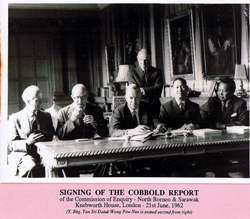
With the Cobbold’s Commission’s strong recommendation in favour of the formation of Malaysia, the Malaysia project kicked into life.
The Malaysia Agreement was signed in London on 9th July 1963 and amended in Singapore on 28th August 1963. The signatories were (1) The United Kingdom of Great Britain and Northern Ireland; (2) the Federation of Malaya; (3) North Borneo; (4) Sarawak; and (5) Singapore. With the Malaysia Agreement coming into force on 16th September 1963, Malaysia was thus formed.
Looking back at the formation of Malaysia is as useful as watching the sun set.
It is beautiful, it brings fond memories, it can be a philosophical exercise.
And what do you always say when the sun is set?
“Heck, it’s late”.
What’s done is done. We phase back into the present and move on.
The dubious powers of the Federal Government in citizenship
As remarked above, West Malaysians cannot enter and stay in Sabah freely. I also explained why this is so – it was a safeguard given to Sabah because of the “special circumstances” in the formation of Malaysia. Sabah has exclusive control over immigration and border control within the territories of Sabah.
Now then, consider this.
The population of Sabah has increased four-fold from 648,693 in 1970 to 2,603,485 in 2000. That is a 401% per cent increase. That is equivalent to couples between the ages of 20 to 40 years old having 10 children each! It is not just because Sabahans are well-endowed or bunny-like hardworking. It is simply because non-Sabahans have suddenly been transmogrified as Sabahans.
How, you ask? There are two flaws in the system.
(1) The immigration department is staffed by non-Sabahans
(2) The power to confer Malaysian citizenship rests with the Federal government.
The immigration department is staffed by non-Sabahans
The first one is obvious. If immigration is not staffed by Sabahans who are educated and trained in the constitutional safeguards, then border control by the state government becomes eroded.
Citizenship by Federal Government
Sabah has control over borders and immigration. The Federal government has the power to confer citizenship. That is an incontrovertible fact.
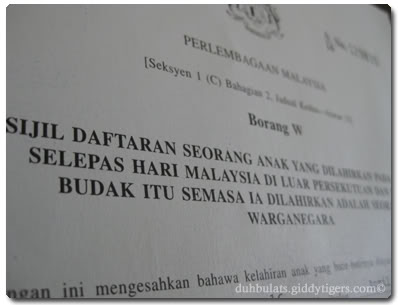
So if the Federal government is intent on allowing a certain someone to stay in Sabah indefinitely, what can the Feds do?
Simple. Revoke that person’s nationality (if Malaysian to begin with), smuggle that person into Sabah, then give him or her citizenship – award the person with an IC/MyKad that carries the magic number ’12’. Suddenly, that person becomes a Sabahan whose existence is protected by the very same safeguards created to keep him away!
This has actually happened on a widescale basis. We are talking about hundreds of thousands of illegal immigrants or pendatang tanpa izin becoming Sabahans. This exercise was called ‘Project IC‘ or ‘Project M‘. Dr. Chong Eng Leong, a former Sabah senator turned activist, estimated more than 600,000 new Sabahans “appeared” in such a way.
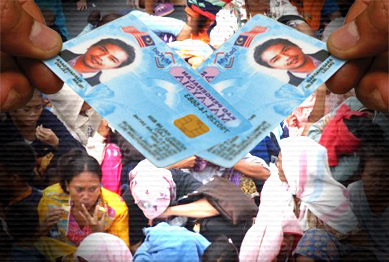
These people, in turn, are extreme Federal loyalists. Who, in those circumstances, wouldn’t be? They were thrown a lifeline. They were given a chance to stay and be treated as an equal in Sabah – in a land they struggled so hard to enter. If not loyal, they are at least grateful. Guess who these 600,000 new Sabahans will vote for?
Didn’t someone recently say Sabah is a “fixed deposit”? Well, that person is correct.
The effects are dire. Democracy in Sabah is hugely affected. Sabah has in effect lost its right to self-determination.
Put it this way, if you were an equal shareholder of a company with 4 other people, your vote would count as 20%. You only have to work with 2 other persons to gain majority and make important decisions. Now if the number of shareholders were increased to 10 people, you’re disenfranchised. You would have to convince at least 4 others to join you to break even. And that’s the best you can do. The additional 5 persons will never join your side. Someone say fixed deposit again?
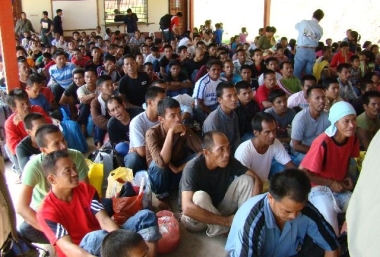
Notwithstanding the above, we still have more than 750,000 illegal immigrants who are undocumented, who have no valid travel documents and have no work passes. I am referring to Dr. Chong Eng Leong’s paper “Human Rights and Citizenship : Its impact on Economics, Social and Cultural Rights“.
Representation
You may, at this juncture, be blaming Sabahan leaders for even allowing that to happen.
Yes, perhaps certain leaders may have turned a blind eye or facilitated it. But look at them. They are powerless.
Let me explain.
In paragraph 236(a)(i) of the Cobbold Commission Report:
“Representation of the Borneo territories in the Federal Parliament should take account not only of their populations but also of their size and potentialities”.
In fact, in the Malaysia Agreement, the first Annexure – Malaysia Bill states:
Section 9
(1) The House of Representatives shall consist of one hundred and fifty nine elected members
(2) There shall be
- One hundred and four members from the States of Malaya
- Sixteen members from Sabah
- Fifteen members from Singapore.
- Twenty-four members from Sarawak
This composition in the House of Representatives was designed as such specifically with one thing in mind – to allow at least 1/3 say for the states outside Malaya. Try it. Do the calculation. You’ll see that Sabah, Sarawak and Singapore combined have 34.59% of the seats in the House of Representatives – just over 33.33%
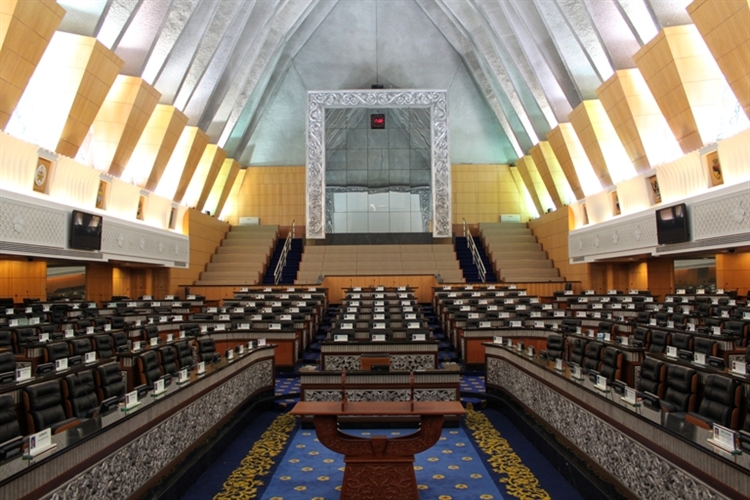
Look at the current composition. Article 46 of the Federal Constitution says the Dewan Rakyat now consists of 222 elected members with only 25 from Sabah and 31 from Sarawak. East Malaysia therefore has 25.22% say in the Dewan. The entire East Malaysia’s population accounts for 25.15% of the population of Malaysia. Seems fair?
But remember how the Cobbold Commission specifically recommended that the size and potentialities of Sabah and Sarawak must be taken into account – not just the population? According to data on Wikipedia, Sabah covers 73,531 km2. Sarawak covers 124,450 km2. Meanwhile, the entire West Malaysia covers only 131,598 km2. Sabah and Sarawak is around 150% bigger than West Malaysia. Is the extra 66,483 km2 only worth 0.07% say in the Dewan Rakyat? As an analogy, 66,483 km2 is equivalent to Selangor, Malacca, Johor and Pahang combined. And all of these places represented by one dismembered arm (or 0.07 % in the House or 15.54% of an MP).
More importantly, now that Sabah and Sarawak do not command 1/3 of the Dewan Rakyat, we have lost its ability to veto against any constitutional amendments!
There are many more gripes and dissatisfaction amongst Sabahans and more generally, East Malaysians.
There are complaints about the misuse of natural resources, royalty for oil and gas, discriminative policies against East Malaysian trades, low income vs high living expenses, corruption, the list goes on.
Though hope is frail, we must fight on.
There are various political parties and NGOs vying to enforce the Malaysia Agreement and to put into effect the Cobbold Commission’s original intentions. However, it is acknowledged that real changes cannot be made by the East Malaysian state governments alone. For constitutional amendments of such significance, the Federal Government must concur and move the Parliament for Sabah and Sarawak.
Since the March ’08 tsunami in West Malaysia, the battlefield for Putrajaya has been centered around East Malaysia. The ball is in our court. Perhaps this is high time for Sabahans and Sarawakians (both the incumbents or the opposition) to negotiate for higher grounds for Sabah and Sarawak in the next Parliament.
It may be wishful thinking but perhaps both the incumbents and the opposition can promise such changes in exchange for the votes in Sabah and Sarawak.
In this scenario, whoever wins, we the East Malaysians win.
Ryan Soo is a ‘cappietalist’, a capitalist on the outside but a true hippie in the core. He cares for mother earth yet still sell his soul for a Lamborghini Aventador. Feel free to contact him through twitter on @ryansoo

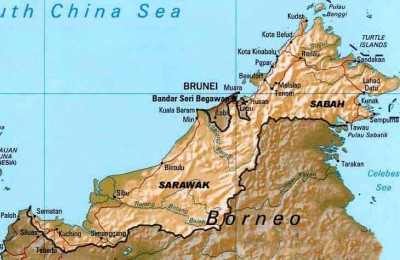
Eye opening piece of facts that have to communicate to the every Sabahan that do not know what are we into . I hope we will overcome . May be will take another generation to get back our right . As more Sabaha are educated now n in the very near future . Sabahan will then relized how our State had been rubbed and mistreated by the West Malaysian . A lot of west had made their riches in exploring our Bumiputra . Let our Sabahan cries reached to the Heaven . Let justice reign .
Do West malaysians realise, when we celebrate 31st August Merdeka Day we celebrate an independent Sabah, not 'Malaysia'?
UMNO EDUCATED MALAYANS FIND IT HARD TO GET OUT OF THE MIASMA OF RE-WRITTEN HISTORY!
1963 – BIG LAND GRAB- SABAH & SARAWAK ANNEXED BY EXPANSIONIST MALAYA!
What is said about Sabah's political dilemma could be equally said about Sarawak. Both continue to be colonies!
The balance of power is a non-issue since UMNO Malaya has already assumed direct colonial control of Sabah. It plans the same for Sarawak despite loyal proxies like Taib Mahmud having held the fort for them and even signed away Sarawak oil rights to KL in 1974.
It really depends on what perspective you are looking at "Malaysia". On the surface the British portrayed its as a democratic "union" of Malaya Singapore Brunei Sabah and Sarawak.
In fact this "union" was mooted by British colonial office as early as 1942. It was an idea to consolidate the British colonial territories within the "Malayan Union". At this time the Colonial Office recognised Sarawak as an independent sovereign state (albeit under its protection). Sarawak was a self governing state for 100 years in 1941 before Malaya was the twinkle in the eye of Tunku Abdul Rahman or his British puppet master.
Not long after "Malaysia" was "formed" Singapore "dropped out" or was "expelled" depending on your view and Brunei never "joined". So it was not what it had started out to be.
Many critics are saying the current arrangement is a breach of the original plan and therefore the union is illegal.
There is one major argument against the "Malaysia Plan" which remains true.
Since 1963, the argument about the legitimacy of Malaysia was a major concern for the affected colonies as they were to be placed under the rule of Kuala Lumpur when the British relinquished their colonial control. This view was shared by the left and right of the political divide. They were concerned that Malaya will become their new colonial master and both Sabah and Sarawak leaders insisted on corollary agreements to be attached to the "Malaysia Agreement". They were attached but have been conveniently forgotten.
The most vigourous opposition came from the Brunei People's Party, Sarawak People's Party and Sabah politicians. They called the "Malaysia Plan" or "Proposal" a neo-colonial plan by Britain to hand over the reins of colonial control to Malaya. This view was at the time supported by Indonesia,Philippines, China, some Africa states and other socialist countries.
The Brunei Uprising on December 8 1962 testifies to the strongest opposition of the people against so-called "Malaysia". The independence of the "Unitary State of North Kalimantan" was declared. This was the counter "proposal put forward by the anti-Malaysia forces in the 3 Borneo territories.
Following the suppression of the Tentara Nasional Kalimantan Utara, the counterparts of the Brunei patriots carried on the armed struggle for independence under the Pasukan Raykat Kalimantan Utara (PARAKU) and the People's Guerilla Forces in Sarawak. This struggle went on till 1990.
As it has turned out, "Malaysia" was basically just one BIG LAND GRAB by the Malayan UMNO regime complete with all the power and control over the land and rich resources of Sabah and Sarawak.
Professor Ooi Keat Jin wrote an article on "How Sarawak was conned into the formation of Malaysia"
http://pengayau.wordpress.com/2010/04/23/how-sara…
This comment was posted by a Sarawal Blogger in Hornbill Unleashed with the following comments on Sarawak:
"For us the watershed in our history was 1942. For 100 years before this date we evolved from a colonial territory into an independent sovereign state. Then history intervened.
From that date – Japanese occupation to 1945, then British rule from 1946 to 1963 and Malayan UMNO colonial rule 1963 to present is a period that has seen the general corruption of our way of life and government compared to before 1963.
Whatever advances there are- have been made in the prosecution and implementation of Malayan UMNO colonial domination and plunder.
We have now seen the infiltration of Malayan political parties of the local political system signifying another layer of colonial domination like French colonialism which treated conquered territories not just as colonies but as provinces. UMNO has even mass transmigrated several millions of foreign Muslims to outnumber locals and secure its hold over Sabah and soon Sarawak when its SCORE scheme kicks in. But Thousands of natives have been denied the right to vote on the excuse they cannot prove they are local born people. And we are not talking about the illegal migrants which UMNO allowed into Sabah and Sarawak.
Life before 1963 was relatively innocent. Since 1963 we have faced a gradual corruption of our whole society from the corrupt Chief Minister and government system down to the quality of life of the ordinary people in the far flung countryside.
We Sarawakians have so many immediate issues to tackle: loss of land and trees that came with a pristine environment caused by corruption, abuse of power and the corruption of the so-called democracy process, corruption of right to freedom of basic human rights more starkly highlighted by the recent denial of religious freedom,etc.
This was succinctly put by Simon Sipaun former vice-president of Sabah Human Rights. Everything he says of Sabah and sentiment he expressed can be applied to Sarawak verbatim.
“Life in Sabah, before Malaysia, was very pleasant and good, to say the least. There was no racial problem, mixed marriages were very common, and that is why we have so many Peranakan in Sabah.
If Sabahans are now conscious of racial and religious divide, it has been imported from Semananjung. There was no illegal immigrant, there were no cases of Sabahans losing citizenship status while foreigners get it without much difficulty.
There were no repressive and draconian laws, such as Official Secrets Act; Datuk Dr. Jeffrey is very familiar with this, Internal Security Act, sometimes referred to as ISA or “I Simply Arrest”, the Printing Presses and Publications Act, the Seditious Act, the Police Act, and the four Proclamations of Emergency; we are still under emergency as of today even though the conditions for having emergency proclamation is no longer there, there was not quarrelling over dead bodies, the composition, and I spent three years of my career in the civil service before Malaysia, the composition in those days of the civil service was reflective of the racial makeup of society.
It was multi-racial, meritocracy was practised. Corruption and ketuanan Melyau, we never heard of it. And the thing continues. How not to miss Sabah before Malaysia.”
Iskandar Dzulkarnain, commented in Malaysia Chronicle:
“While the Opposition sees the speech as a shining beacon in their so-far fruitless cause to take over East Malaysia, UMNO sees otherwise.
Reading between those lines, you will agree with UMNO Sabah, that although it sounds pretty nationalistic, there are serious seditious undertones beneath. We were forced into Malaysia not even “joined” or voluntarily “Formed Malaysia”. ”
Corruption can be used to described how it has affected our whole existence as a people and country.
Our most precious right the right to be free and independent has been taken from us. “Voting” for many Sarawakians like trying count the trees when the forests have disappeared.
And life was a lot better before the corruption set in 1963! How not to miss Sarawak before Malaysia!!!
Comment by Sarawakbaru — March 28, 2011 "
Hah, reminds me of how Penang got forced into the Malayan Union against its will.
May, "Though hope is frail, we must fight on."
"It may be wishful thinking but perhaps both the incumbents and the opposition can promise such changes in exchange for the votes in Sabah and Sarawak.".. the problem is most politicians especially the younger ones on all sides do not know the Malaysia Agreement. How can Najib hope to achieve 1Malaysia if they even got Malaysia wrong in the first place.
PR, if it is sincere about being the true alternative to BN, at least for Sarawak and Sabah, must make it's stand clear whether it is for or against the enforcement of the Malaysia Agreement. That should be at the top of its GE13 Manifesto.
Great Article Ryan …Keep them coming. Awareness and embracing these issues and fighthing them hard and HARD I repeat will eventually lead us to that TIPPING POINT where we shall then overcome the evil that has been done and imposed on us Sabahans! I am certain our fellow partner State, MALAYA, feels sad, embarrased and angry that their fellow partner, SABAH, has been subjected by our own traitors who are SABAHANS themselves along with their conspirators, in West MALAYSIA! The good conscienable people of MALAYA, SABAH AND SARAWAK, have an ear for us and fight hard for us and with us…. SABAH, SARAWAK and MALAYA made MALAYSIA …. What sort of person wants their founding partner to suffer? In the meantime, respect for LABOUR DAY to all.
May, I agree with Nijam. When you lose hope, those supposed leaders walk over your dead body.
For me, I'll continue fighting. If not to change the corrupt system, I hope to reduce it.
"Every little helps" – Tesco.
(Sorry I can't come up with any phrase more profound than that!)
May,
Don't lose hope.
You can do something. Do your bit and prepare yourself to act for change in Sabah. Example? Start by reading more; be more informed. Educate as many as you can on the core issues. Brainstorm the ideas to better the state. Make it clear. Look and choose the right person for the job. Support and help get that job done right. Probably a lot more, but I think you get the picture.
But don't ever lose hope.
"We can accept finite disappointment, but never lose infinite hope" – Martin Luther King Jr.
Being a Sabahan it is depressing to see the condition of our state today.
'Fixed deposit'?
I have lost trust in our leaders in all levels.
I have lost confidence in the saying that every vote counts, because for every vote that I give there will probably be 10 'magic' votes that will come out of thin air to counter my vote.
I have lost hope that our leaders have any real sincerity in leading & serving the people. In my not so informed eyes, it seems like for every 5% that they give they will keep 95% to themselves and their cronies. (Well.. like I said not so informed I may be exaggerating).
Is it true what I think I see? that the leaders are in it to make money, stash it somewhere and live happily ever after? and then on to the next 'leader' doing their bit?
It is shocking to know that Sabah is now the poorest state in the country.
Seriously?
What can I do about it? I really don't know.
Right now all I am doing is despairing and commenting on it.
What can I do? vote? would it even make any difference?
I don't know. Do you?
Great job RS for highlighting our eroded rights. The younger generations should know about how we were tricked and manipulated into joining Malaysia. In a way we are still colonised! It's just that the headquarters was shifted from London to Kuala Lumpur. Just take a look at the civil service,all the senior positions in both Sabah and Sarawak are monopolised by the West Malaysians. At least Sabahans are waking up. Sarawakians are still half asleep!
I like.
Very useful piece of information. Impressive.
Will read it soon…heheheh :)
Much more substantive read. Tackling the nitty gritty issues. Awesome job RS!!